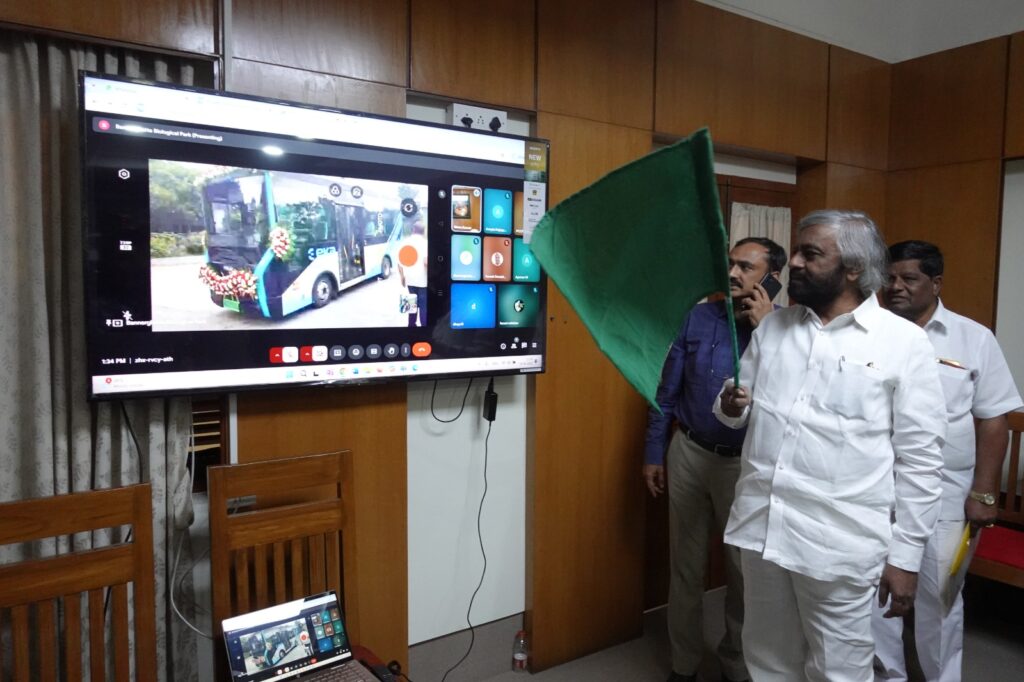
Forest, Ecology and Environment Minister Eshwar B Khandre flags off electric safari bus
‘India’s first’ electric safari bus flagged off at Bannerghatta
Bengaluru
In a small step towards sustainable wildlife tourism, Forest, Ecology and Environment Minister Eshwar B Khandre virtually flagged off India’s first electric-powered safari bus for trial runs on Wednesday at the Bannerghatta Biological Park. Alongside this development, he announced that ten exotic wild animals including chimpanzees, hunting cheetahs, and jaguars will be added to the park within the next few months.
Speaking at the launch, Khandre stated that hunting cheetahs and capuchin monkeys will be brought from South America through an exchange program in the next four to five months. By next year, Chimpanzees, Jaguars, and Pumas (North American mountain lions) will also arrive at Bannerghatta, expanding the park’s global wildlife presence.
Currently, the safari at Bannerghatta operates within a limited enclosure area and offers visitors the chance to view tigers, leopards, lions, and bears. These tours are now conducted using diesel vehicles, but to curb carbon emissions and promote eco-friendly practices, electric vehicles are being introduced for the first time in the country. “The newly launched bus is equipped with 22 seats and a 100 kWh battery. With just two hours of charging, it can travel 160 kilometers – enough for up to 8 safari trips. For now, only one electric bus will be in operation, but the minister announced that by 2027, Bannerghatta Safari aims to transition into a completely fossil fuel-free zone, excluding utility vehicles like tractors.” he informed.
With a surge in weekend and holiday footfall, the government is also planning a smart parking system at the zoo to ease congestion. Tenders for this facility will be floated soon.
Bannerghatta Biological Park has seen a record footfall in recent months. In May 2025 alone, nearly 2.85 lakh visitors toured the park, with the leopard safari emerging as the most popular attraction.
Another major plan is the construction of a large public aquarium within the national park. A detailed project report is being prepared, and tenders will soon be invited. The park already houses seven lakes and receives water supply from the Bangalore Water Supply and Sewerage Board (BWSSB), ensuring there will be no water shortage for the upcoming aquarium.
Referring to the recent deaths of a Zebra and a Nilgai at the park, Minister Khandre called the incidents distressing and confirmed that an inquiry has been ordered. A report from the Chief Conservator of Forests (CCF) has been requested, following which necessary action will be taken. He assured that all steps would be taken to prevent unnatural wildlife deaths in both the zoo and biological park.
Khandre also announced that a new zoo is under construction in Kalaburagi (Gulbarga) in the Kalyana Karnataka region and will be ready by December this year.
For More Bengaluru Development here
Donate for fearless journalism

